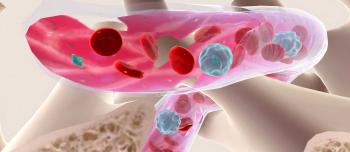The US Food and Drug Administration (FDA) has granted “breakthrough therapy designation” to an investigational, combination therapy of daclatasvir and asunaprevir for genotype 1b chronic hepatitis C (HCV) developed by Bristol-Myers Squibb. Breakthrough drugs are put on a fast-track approval program and given intensive guidance from the FDA. Since the FDA’s Safety and Innovation Act was signed into law in July 2012, only four breakthrough therapies have been approved.
The designation was based on data from an ongoing phase III clinical trial of the oral regimen of daclatasvir, an investigational NS5A replication complex inhibitor, and asunaprevir (ASV), an investigational NS3 protease inhibitor, without the drug ribavirin, previously one of the drugs considered standard of care for treating HCV patients. Both drugs are direct-acting antivirals that disrupt nonstructural (NS) proteins HCV needs to replicate.
“This is an important milestone for Bristol-Myers Squibb as we continue our strategic focus on the development of innovative medicines to address areas of high unmet medical need, where potential expedited review can make a critical difference for patients,” said Brian Daniels, senior vice president of research and development in Bristol-Myers’ Global Development and Medical Affairs group.
Source: Fox Business News, February 24, 2014





